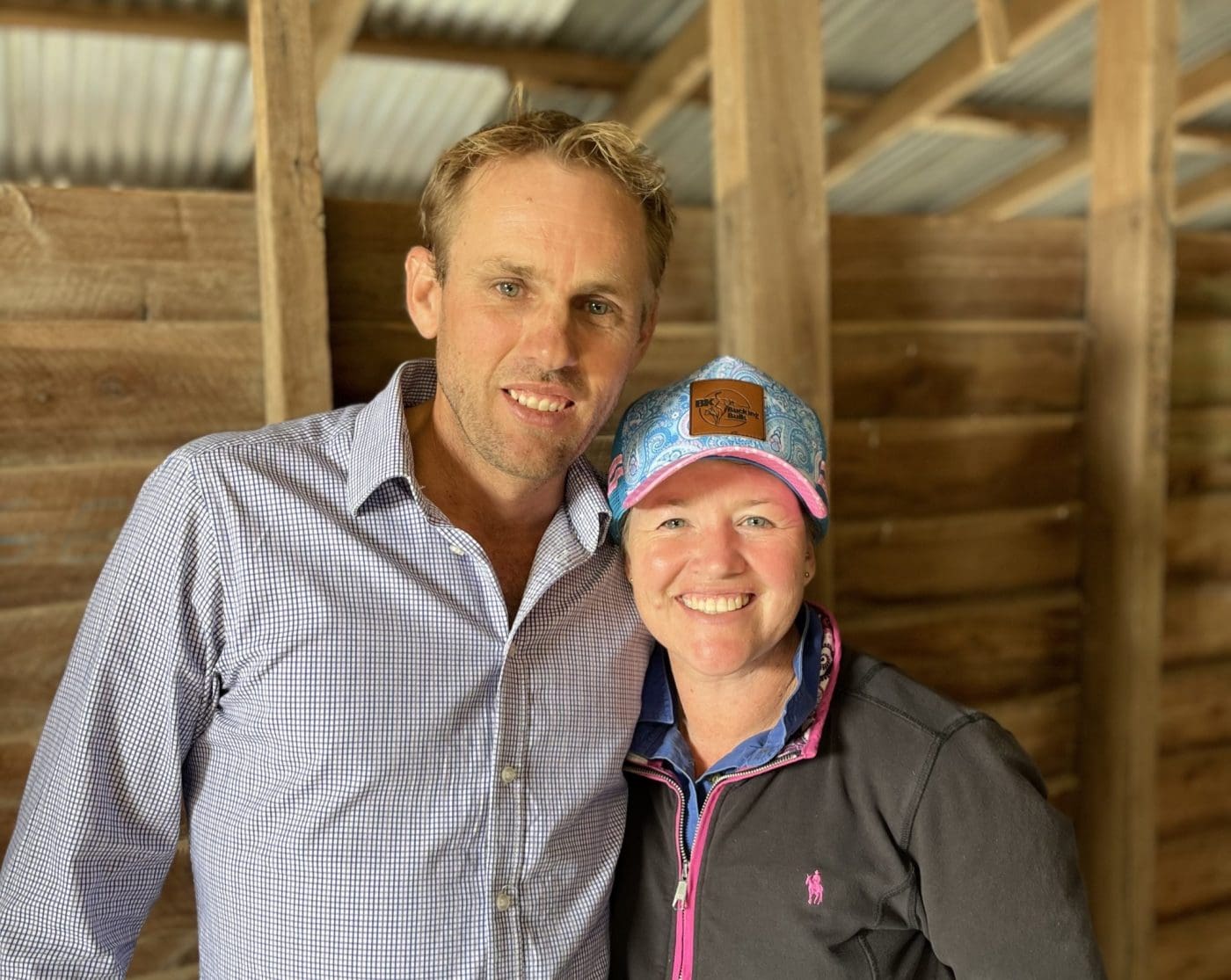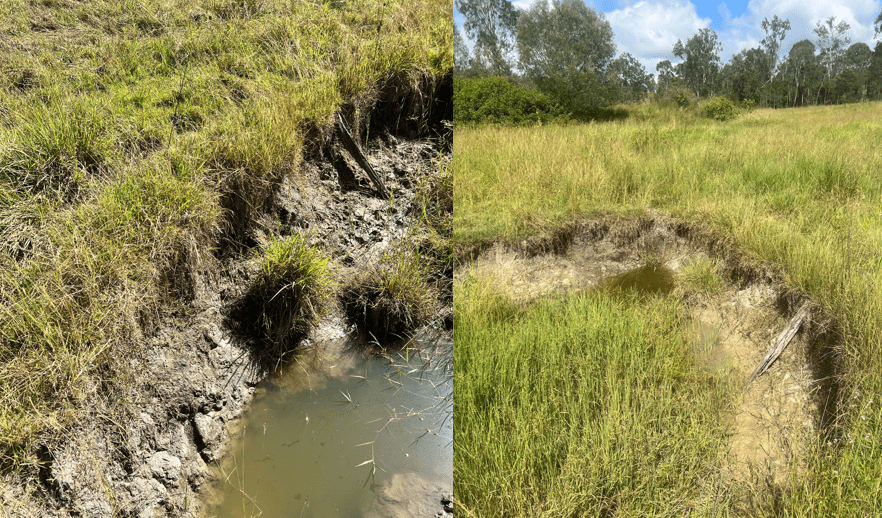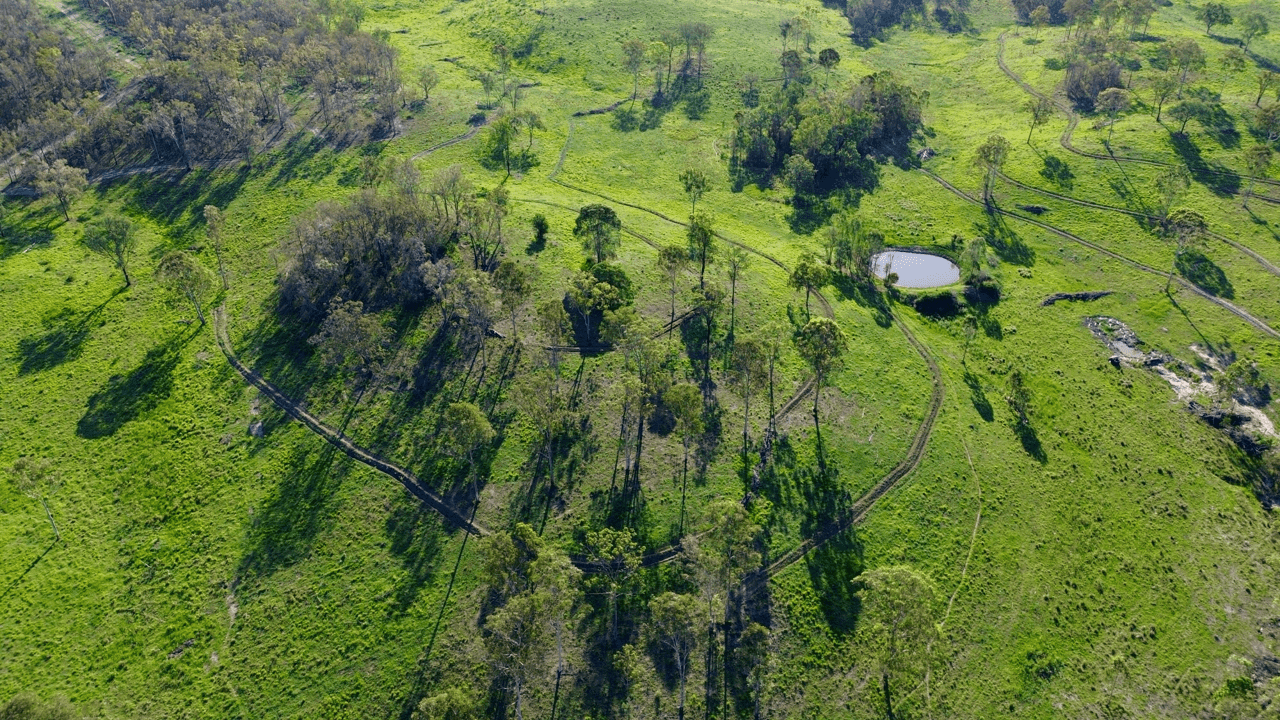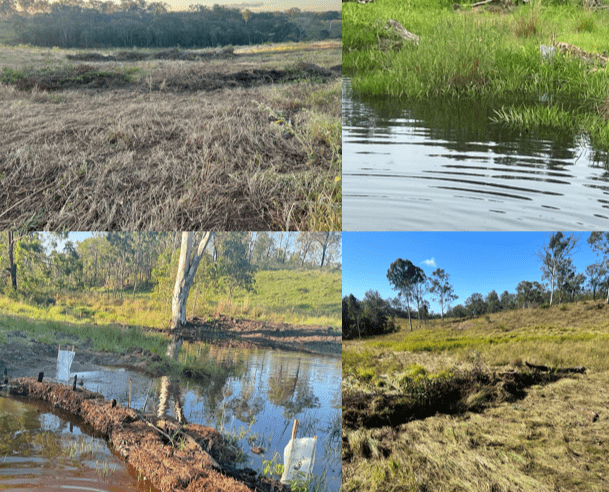FOR Neil and Jan-Adele Reinke, a freak horse accident resulting in a broken neck was the catalyst for a concerted effort to fix up a systemic erosion problem on their Central Queensland property.
The pair were presented the “tree of life” award at last week’s Lachlan Hughes Foundation gathering in Toowoomba, where this year’s scholars were introduced and last year’s scholars presented their experiences. The award is valued at $40,000 – including a cash prize and access to a series of programs.
LHF was set up in 2019 to carry on the legacy of Southern Qld cattle producer and “regenerative agriculture” advocate Lachlan Hughes, who tragically lost his life in a farm accident in 2018.
Mr Reinke said Lachlan’s story hit home particularly hard when he broke his neck in a horse-riding accident in 2022 on their property between Bundaberg and Miriam Vale.
“I was riding my horse and training two other horses when I hit a slump hole in long grass before pivoting on my head and breaking my neck,” he said.
“I called the Ambulance, but knew they were going to struggle finding me, so I walked four kilometres back to the house with a fractured neck.
“Lachlan’s story gave me a big realisation that my accident could have had a completely different outcome.”
While he was recovering from the fracture, the Reinkes made an application to join the Lachlan Hughes Foundation as one of six scholars.
 The proposal was to repair a systematic erosion problem on a section of the property, which had been a problem for the past 50 years and was the area where Mr Reinke’s horse had fallen into a slump hole. The application was successful.
The proposal was to repair a systematic erosion problem on a section of the property, which had been a problem for the past 50 years and was the area where Mr Reinke’s horse had fallen into a slump hole. The application was successful.
Long-held interest in natural sequence farming
Prior to the crash, the Reinkes were keen to fix up the area – with the paddock not performing well from a productivity perspective and water running off the property quickly.
The pair had also been interested in “natural sequence farming”, which is a management technique aimed at restoring natural water cycles with low input requirements – like putting in small contour banks, leaky weirs and restoring areas with pasture and strategically planted trees.
Jan Adele said the scholarship was about regenerating the people, not just the landscape. We wanted to fix the issues on the property and also contribute to the wider industry.
“We had always had an interest in natural sequence farming and the principles it entailed,” Mrs Reinke said.
“We wanted to look at different establishment techniques and cost and practicality on larger-scale operations. We also wanted to showcase some variations in NSF techniques and demonstrate how they could benefit both regenerative and traditional farmers.
“We wanted to fix up an erosion area that had been a problem for more than 50 years, breaking your neck was a motivation, but making it more productive was a big priority because it was one of our poorest performing paddocks.”
‘Wetter is better’
Mr Reinke said the project site they had focused on had a stream running through it, that used to run water off quickly.
“We didn’t have too many waterholes on it and they were gone after about two-to-three weeks after it rained. It was quite deep, two to three metres in places, and the water used to just tear off the place,” he said.
With that in mind they set about the project they named “wetter is better”.
Mr Reinke said he had avoided putting traditional Natural Sequence contour banks for years beforehand in attempting to solve the issue through other means.
“Putting in a contour bank was a big step for me, because I had tried to stay away from the traditional methods – we ended up putting in about five kilometres of natural sequence farming banks,” he said.
“We were pretty chuffed after the first rainfall event because we had no blow outs and increased grass growth without putting in any seed.
“There has been a massive increase in productivity around those banks, you can see the fertility in the grass around those banks and it is really noticeable that the cattle go straight for those banks.”
Constructing leaky weirs to slow the flow of water along the stream was another major of part of the project.
“This is something I had been doing for a lot of years, pushing up logs, lantana, rocks, a little bit of topsoil and anything I can find to slow the flow of water to make a leaky weir across the creek” Mr Reinke said.
“We also used hay bales, basically just $5 cane mulch bales staked in and the use of planted vegetation to get them established longer term, has worked well and was cheap and quick. Another one that wasn’t as enjoyable was a rock wall, which was incredibly labour intensive, but it was really effective in high flow situations.”
Mr Reinke said the area now has a series of more permanent water holes, which was having noticeable impact on production and the environment.
“By doing this, we have created a chain of ponds on the paddock, instead of a fast-running stream. We have already seen some spangled perch in those ponds which has been really exciting to see fish in there,” he said.
Poem for Lachlan Hughes
In finishing the presentation the Reinkes prepared a poem to commemorate the life of Lachlan Hughes:
It’s a little too late, to change your fate
We have all been there, rip tear
No time to think, it just takes a blink
Like closing your eye, then saying goodbye
To turn your world upside down & your family to drown.
Your sacrifice has not been in vain, even through the pain
Your family’s resilience, can be described as brilliance.
And Lach, no one will knock, your family’s vision, their mission
You can hold your head high as we all apply.
You were a man, with a regen plan.
Regen ag, is a mixed bag
It is easy to think, we can come back from the brink.
Slow the Flow,
Let all things grow, watch where the cows go,
Your landscape is key & keep the trees
The changes are slow, but your biodiversity will grow
Soil health will increase human health & your monetary wealth
We’ve had a glimpse of your Life,
through the eyes of your wife
Regen Farmers throughout the State, now become mates
No one lost a toe, when your dad swung a hoe
Trying to show, where the water will go
And all will agree that there are some laughs with your Mum & her food is quite yum
And to Barb, who got the job done, while making it fun
You had to train, while we used our brain,
We have now awoke, through personal growth
I now know I can, as I have learnt to plan
Work smarter, not harder, now a self starter
And have found, wetter is better, but fertility first
So I know it’s a bit late, but thank you mate
You have changed my life, for me & my wife
To Lachlan Hughes we owe our dues.




